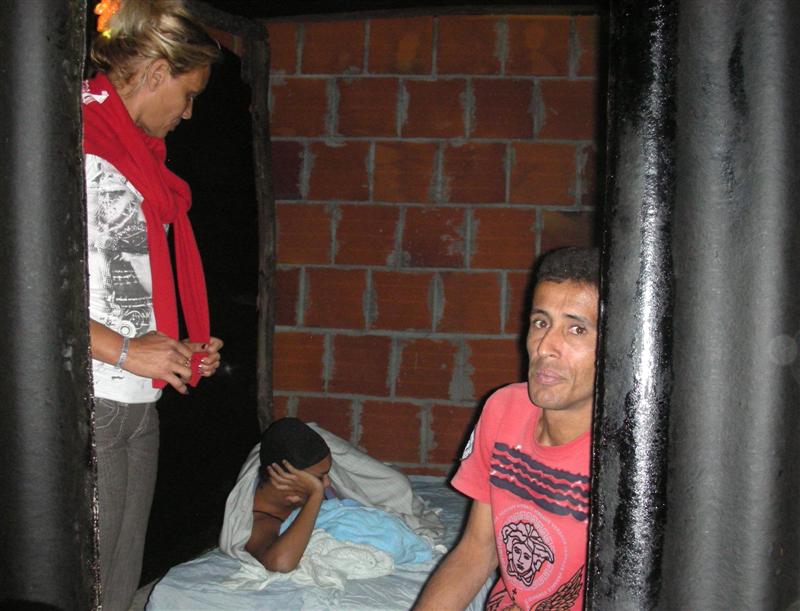 Just a few hours ago a shocking even took place in my semi-wintry Bayamo: at approximately seven at night this Wednesday, December 22, a young man of 34, Alexander Otero Rodriguez, appeared at a central corner of the city, accompanied by his wife, Aliuska Noguer Tornés, 18, along with their baby, born 48 days ago.
Just a few hours ago a shocking even took place in my semi-wintry Bayamo: at approximately seven at night this Wednesday, December 22, a young man of 34, Alexander Otero Rodriguez, appeared at a central corner of the city, accompanied by his wife, Aliuska Noguer Tornés, 18, along with their baby, born 48 days ago.
Accompanying them, a relative and a friend.
In a few minutes they built a fiber-cement hut from fragile boards, in a vacant lot once occupied by a grocery store. They spread out on the floor — surrounded by weeds — the rickety mattress they brought on their backs, and got ready for the storm.
Alexander Otero just took the riskiest step of his life, the most desperate: publicly claiming the right to adequate housing for him and his humble family.
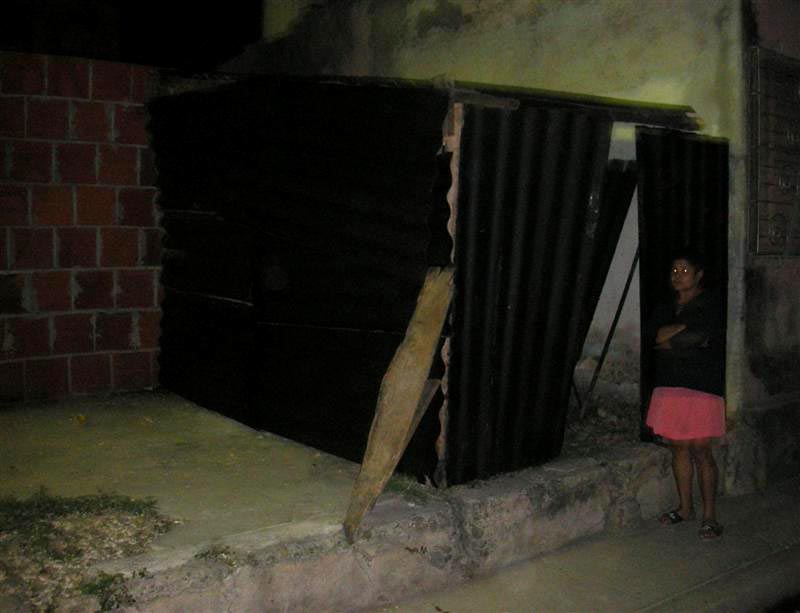
It took no time at all for the public officials, the police, the Committee for the Defense of the Revolution (CDR) to come and question that blackish den where suddenly two people with a newborn baby had installed themselves. The answers from both young people were the same: “We’re not moving from here until someone puts an end to the way we are living. We have spent months wandering from place to place, we don’t have a home, and now that our son is born we are sleeping in the streets.”
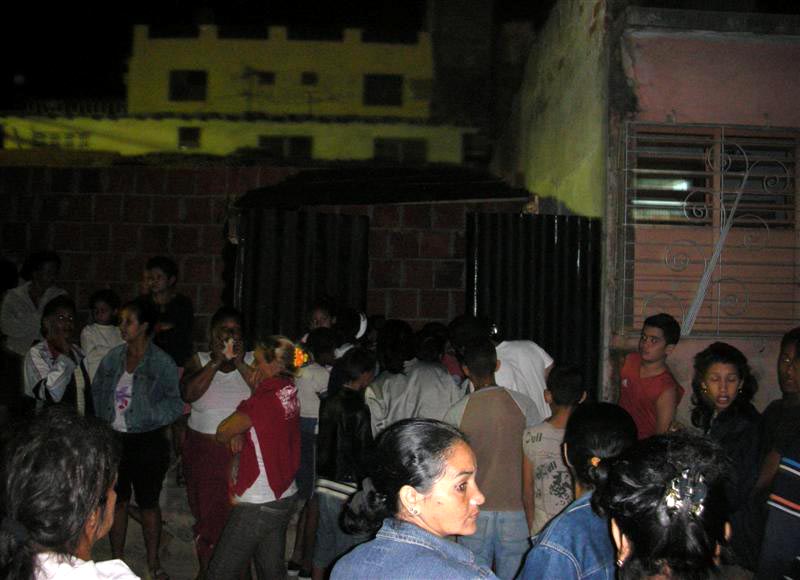
Not late in coming, either, were the curious, the supportive neighbors, who were suddenly left speechless by what these people were doing; nor was the informant late in coming, a member of the intelligence services who, unhappily, tried to avoid my filming the event and taking photos of him.
I repeat: unhappy man, who never imagined — as I could never imagine — that a crowd of dozens of Bayamese would turn against him, almost expelling him, and showing an enormous contempt for his sudden “coming out of the closet” as a citizen repressor.
According to the words of Otero Rodriguez, this action was the culmination of an inhuman waiting that started 11 years ago, when he first asked for a small space to build himself a home. Since then, the Housing Department continues to ask him to wait while, he said, they allocate huge amounts of land for houses for government and military officials in the area.
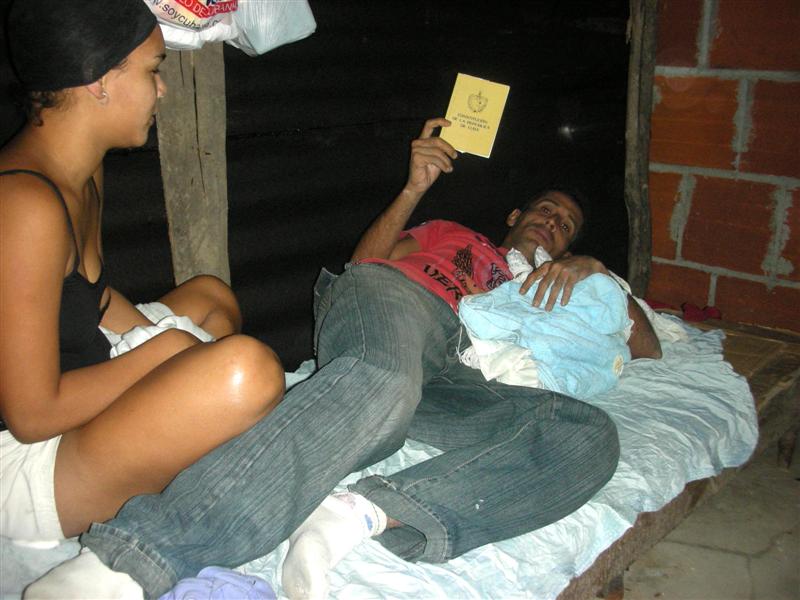
“For months Aliuska and I have lived as nomads, renting at night in a small room or sleeping in the Bus Terminal. When our son was born, we asked the authorities to pay attention to our situation (homeless and with a baby), and they only thing they did was to sell us these fiber-cement boards and seven bags of cement, without giving us authorization to build a house.
After leaving the Maternity Hospital, the three had continued to sleep in the open.
“In parks, in terminals, in doorways. We have knocked on the doors of the Housing Authority, we have been to the Party headquarters, and all, absolutely all, have shown no interest in our case. They tell us their help — selling us the boards and the cement — ended there. So here we are unable to move on with our life.”
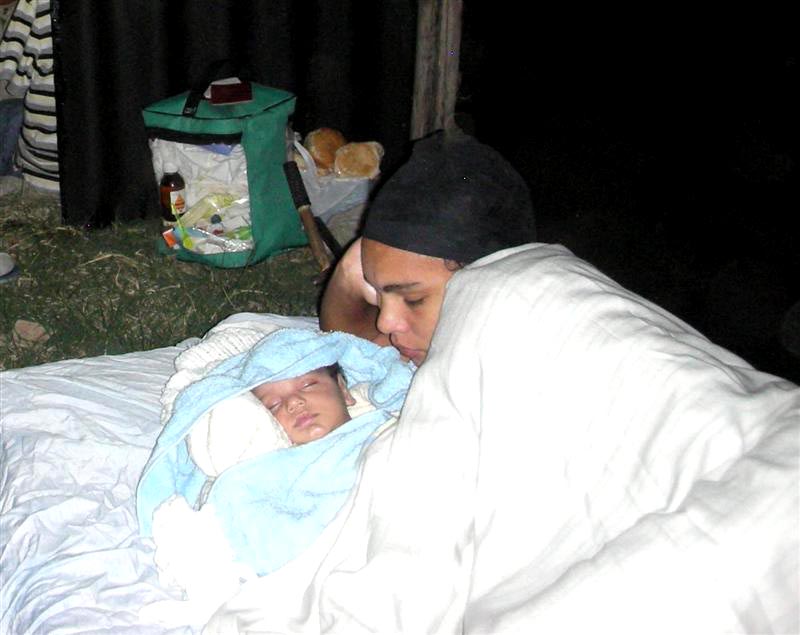
At nine at night, with a considerable crowd in strong support, both parents challenged the bureaucrats of the Housing Authority and the President of the Municipal Assembly of Peoples Power, and the handful of officials who dared to pass through the circle of neighbors.
Otero Alexander’s words were always the same, “As long as I don’t have in hand some land where I can build a house for my family, they won’t take me from here alive, and I charge them with the life of my child if they try to take me by force and pull down this roof.”
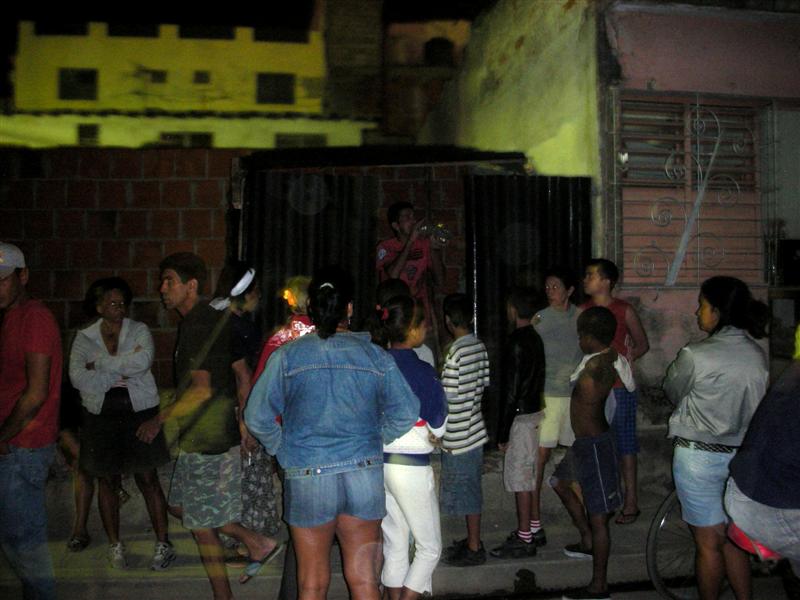
I want to make clear the most exciting part of this, which at four in the morning got me typing like one possessed, and I am still excited by what I witnessed: the unyielding support of thirty, fifty people surrounding that place, who not only give them blankets, food and drink, but in an act of public spiritedness — never seen by me in my environment — they do not hesitate to denounce the corrupt officials, they don’t hesitate to back up with their own fists the decision of this young man, and they didn’t even feel gagged when a crouching repressor tried to block my camera.
I believe it’s time for me to reconsider what I published just two days ago in this same blog, about the ancestral fear of Cubans.
“Enough of lies, of thieving leaders. Enough of the only escape route in this country being emigration. I am Cuban and I do not want to leave my country,” were other words of Otero Rodriguez. “It is not I who should leave this country; those who should go are those who cause things like this, injustices like this.”
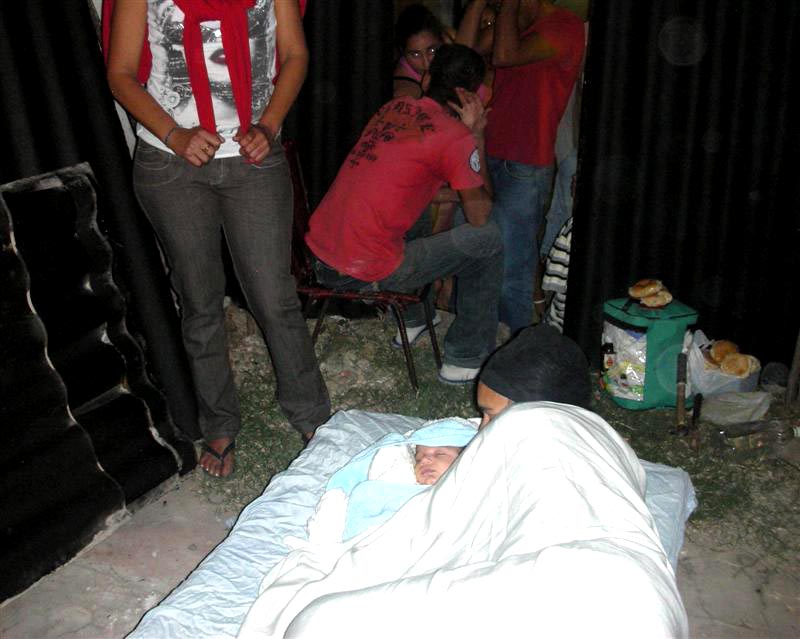
One of the options the young parents had rejected was an ambulance, sent by the authorities, to take the mother and baby to the hospital.
“My son is not sick. The illness my son has is to not have a home. The one most ill is me, I have a huge stomach ulcer, and I will not move from here.”
Arturo Pérez Sánchez, President of the Municipal Assembly of Peoples Power, also went to the site in person, stating that “acts like this are very damaging, they bring down the Revolution,” and then asking the people to retire so he could speak to Alexander Otero alone, a request that the masses disapproved and denied — and so he tried to evaluate the case in the early hours of the morning.
“Anyway,” repeated Otero, “without a signed document I’m not leaving here. We know too well about false promises. The second I leave they will knock me down, and I’ll be sleeping in the street again.”
From this morning of Thursday, December 24, I am sure that the life of this father, strangled by inefficiency, laziness, and the misery to which he’s been condemned, will change drastically, in one sense or another: he will, perhaps, receive a poor site where he can “legally” erect this same shack; or he will be expelled in some way from his scrap of ground and be punished for his act of rebellion.
I intend to follow this event, in the future, as the best way in which I can squeeze the hand of this brave Bayaman, along with so many supportive neighbors, and tell him he is not alone. From now on, he is not alone.
December 23, 2010
